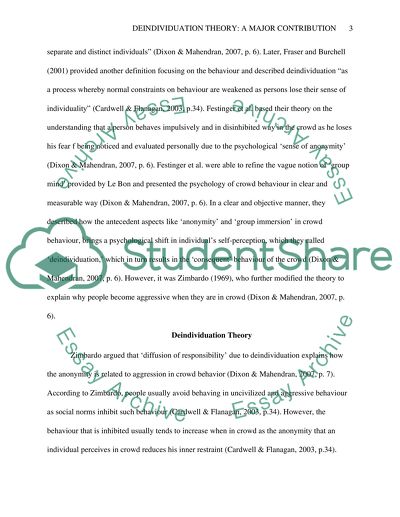Cite this document
(“How might deindividuation theory explain the looting behaviour that Essay”, n.d.)
Retrieved from https://studentshare.org/psychology/1467026-how-might-deindividuation-theory-explain-the
Retrieved from https://studentshare.org/psychology/1467026-how-might-deindividuation-theory-explain-the
(How Might Deindividuation Theory Explain the Looting Behaviour That Essay)
https://studentshare.org/psychology/1467026-how-might-deindividuation-theory-explain-the.
https://studentshare.org/psychology/1467026-how-might-deindividuation-theory-explain-the.
“How Might Deindividuation Theory Explain the Looting Behaviour That Essay”, n.d. https://studentshare.org/psychology/1467026-how-might-deindividuation-theory-explain-the.


